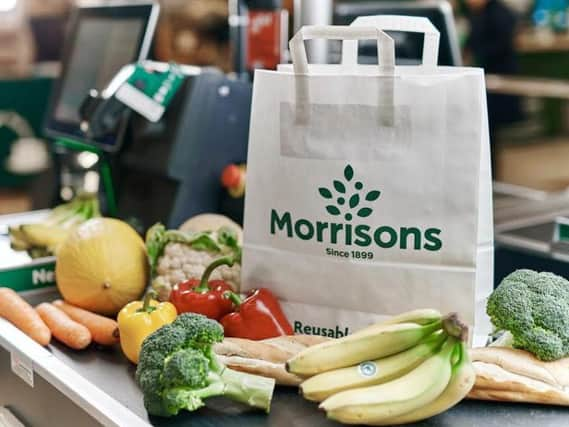Blackfriar: Retailers need clarity on Brexit but are unlikely to get it from Boris Johnson


Kantar said year-on-year supermarket sales fell by 0.5 per cent over the period, which is the first overall decline in the sector since June 2016.
The firm said sales are down on last year’s record summer as spending on traditional summer categories like alcohol and ice cream has declined this year.
Advertisement
Hide AdAdvertisement
Hide AdSales at market leader Tesco fell 2.0 per cent and they were down 2.3 per cent at Sainsbury’s. Asda’s sales also fell by 2.0 per cent.
Kantar said that on the back of record sales during last year’s hot summer, the tough period was expected. It anticipates that the market will return to growth once the comparative highs of the 2018 summer pass.
Consumers spent £75m less on alcohol this year, with beer sales down 11 per cent and cider down 13 per cent. Soft drinks sales fell by £56m and ice cream by £55m.
Lidl was the fastest growing bricks and mortar retailer, with sales up 7.0 per cent. Aldi’s sales rose 6.7 per cent.
Advertisement
Hide AdAdvertisement
Hide AdAnalyst Clive Black at Shore Capital said worried domestic shoppers are being judicious with their spending. He said the current political chaos is wearing upon the shopper, which is manifested in weak consumer confidence.
He said the nation is craving some form of greater political certainty and stability. Blackfriar sees little chance of that happening any time soon.
As Mr Black stated, the macro-political situation that the UK now faces is “embarrassing, chaotic and worrying in equal measure for shoppers”, which makes them understandably cautious.
“Big decisions now need to be taken by Mr Johnson, views that could lead to all sorts of outcomes, which leads us to be more worried than not,” Mr Black concluded.
Advertisement
Hide AdAdvertisement
Hide Ad“A defensive supermarket segment will have to ride the forthcoming waves, which could pose more challenges still. With Mr Johnson at the helm though, what could possibly go wrong?”
Retail analyst Thomas Brereton at GlobalData said the most pressing issue for retailers remains clarification on Brexit, both in terms of timing and the nature of the withdrawal.
Numerous retailers – particularly the supermarkets – have expressed concerns over an October deadline, anxious about the potential increased pressure to supply chains and storage space coinciding with preparation for the busy Christmas period.
Mr Brereton said Mr Johnson’s appointment has seen the probability of a no-deal Brexit rise to 25-30 per cent, augmenting concerns over the supply of fresh food, toys and essentials such as pharmaceuticals and contraceptives.
Advertisement
Hide AdAdvertisement
Hide AdHe said Mr Johnson must now make swift progress in bringing a withdrawal agreement to the table to allay retailers’ concerns.
GlobalData’s July Consumer Sentiment Tracker shows both future and present sentiment declining from the previous month and, despite being marginally higher than the lows witnessed at the start of 2019, this will likely deteriorate as we approach October if the Government fails to provide clarification over Brexit.
Mr Johnson now has to do the impossible. There is no path that will please the gung ho ERG members of the Tory party and the 40 or so Tory MPs who are adamant they will do everything they can to stop a no-deal Brexit. The EU has made it very clear that it will not change the withdrawal agreement.
The last thing the supermarkets need is another General Election in the autumn, but it is looking increasingly likely.